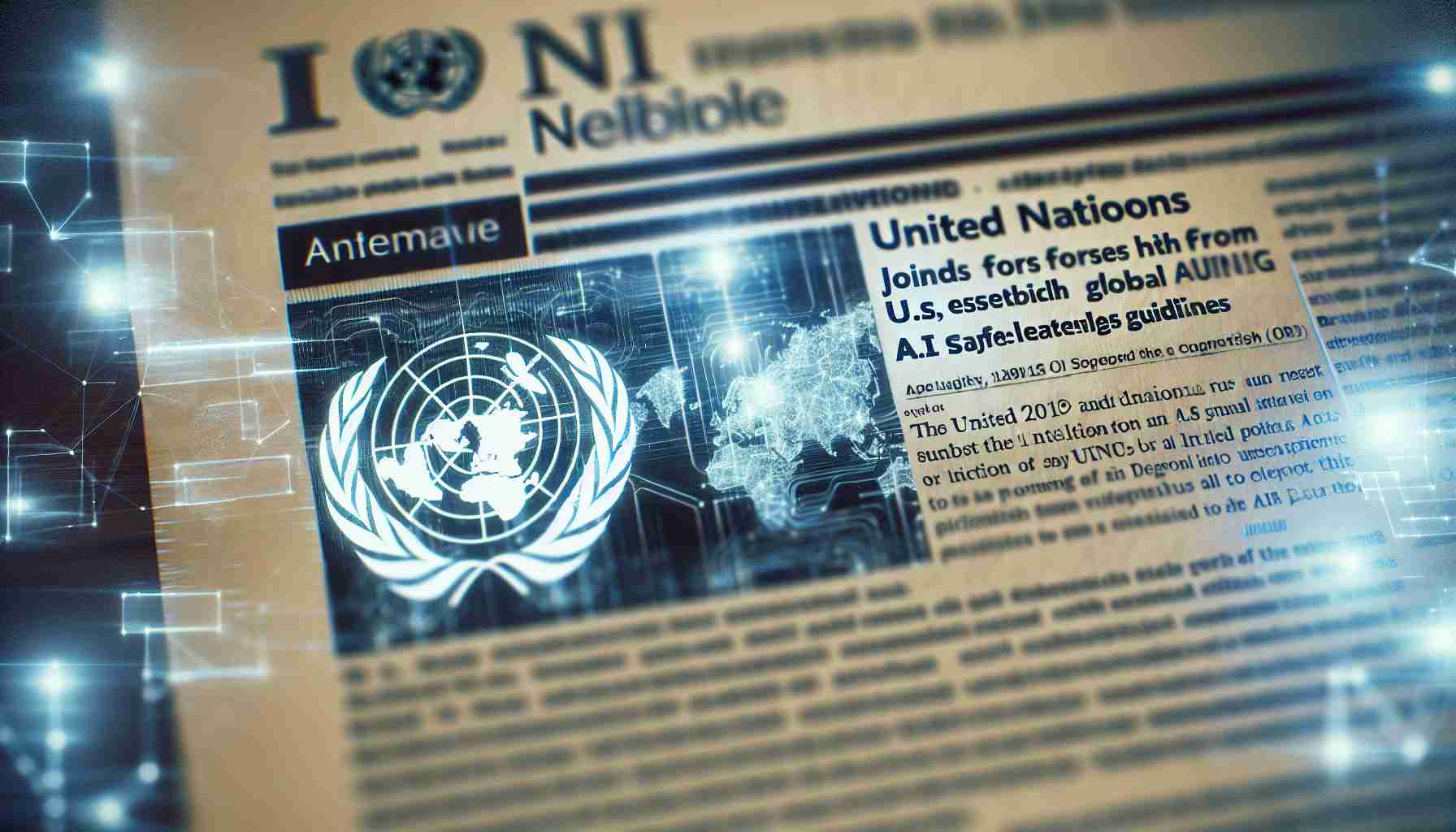More than 50 members of the United Nations are partnering with the U.S. to develop a draft resolution aimed at creating guidelines for artificial intelligence (AI) safety. The U.S. Ambassador to the United Nations, Linda Thomas-Greenfield, announced the resolution titled “Seizing the Opportunities of Safe, Secure, and Trustworthy Artificial Intelligence Systems for Sustainable Development.” The resolution emphasizes the need for safe, secure, and trustworthy AI systems to address global challenges such as poverty elimination, healthcare, food security, climate change, energy, and education.
Frequently Asked Questions (FAQ)
- What is the purpose of the draft resolution?
- Which countries are involved in this initiative?
- Why is international consensus on AI policy important?
- How is the U.S. facilitating AI safety measures?
- What role does the United Nations play in this initiative?
The draft resolution aims to establish a shared approach to AI systems and promote their safe and responsible development to tackle pressing global issues.
More than 50 United Nations member states are partnering with the U.S., including the United Kingdom, China, Saudi Arabia, and members of the European Union.
International consensus on AI policy is crucial to ensure coordinated efforts in addressing the challenges and potential risks associated with AI technology.
The U.S. has established the U.S. Artificial Intelligence Safety Institute to develop standards for the safety, security, and testing of AI models.
The United Nations’ General Assembly is engaging in a global conversation to manage the implications of advancing AI technology and oversee the development of the draft resolution.
International cooperation on AI policy has gained significant traction, with the United Kingdom hosting an international safety summit where world leaders expressed their concerns and signed the Bletchley Declaration. The declaration required participating countries to establish their own safety commissions and commit to pursuing a shared policy on AI.
The European Commission recently launched its AI office, which is intended to serve as a global reference point for AI safety policy. It has also introduced the E.U. AI Act, the world’s first comprehensive law on artificial intelligence.
The U.S. has been actively engaging with the United Nations to develop the draft resolution. U.S. national security adviser Jake Sullivan emphasized the need for a global conversation on managing the implications of AI technology. The resolution received input from approximately 120 nations, and after several rounds of revisions, it will undergo formal consideration by the General Assembly.
The U.S. and its supporter nations argue that the development of a shared AI policy aligns with the 2030 Agenda for Sustainable Development, a U.N. plan of action aimed at eradicating poverty, combatting inequality, and promoting universal peace. They believe that AI has the potential to contribute significantly to achieving these ambitious goals.
The proposed resolution seeks to establish AI systems that are human-centric, reliable, explainable, ethical, inclusive, privacy-preserving, and responsible, with a focus on sustainable development and respect for human rights and international laws.
Several countries, including Morocco, Peru, the United Arab Emirates, Dominican Republic, Australia, Romania, Israel, Canada, Finland, Greece, and members of the European Union, have expressed their support for the U.S. resolution.
As this global collaboration takes shape, it is clear that safe, secure, and trustworthy AI systems are crucial for leveraging the full potential of this emerging technology. Together, these nations are demonstrating their commitment to responsible AI development that benefits humanity.
Sources:
– Fox News
– United Nations Official Website
Frequently Asked Questions (FAQ)
- What is the purpose of the draft resolution?
- Which countries are involved in this initiative?
- Why is international consensus on AI policy important?
- How is the U.S. facilitating AI safety measures?
- What role does the United Nations play in this initiative?
The draft resolution aims to establish a shared approach to AI systems and promote their safe and responsible development to tackle pressing global issues.
More than 50 United Nations member states are partnering with the U.S., including the United Kingdom, China, Saudi Arabia, and members of the European Union.
International consensus on AI policy is crucial to ensure coordinated efforts in addressing the challenges and potential risks associated with AI technology.
The U.S. has established the U.S. Artificial Intelligence Safety Institute to develop standards for the safety, security, and testing of AI models.
The United Nations’ General Assembly is engaging in a global conversation to manage the implications of advancing AI technology and oversee the development of the draft resolution.
Definitions:
– Artificial Intelligence (AI): The simulation of human intelligence processes by machines, typically involving tasks such as learning, reasoning, and problem-solving. AI systems can perform tasks that would normally require human intelligence or outperform humans in certain areas.
– AI Safety: Refers to measures taken to ensure that artificial intelligence systems are developed and used in a safe, secure, and responsible manner, considering potential risks and challenges associated with AI technology.
– United Nations: An international organization founded in 1945 to promote international cooperation, maintain international peace and security, and address global challenges. It consists of member states, including virtually all countries recognized as sovereign by the international community.
Related Links:
– United Nations Official Website
– Fox News article on UN partnership with the U.S. on AI resolution
– Official website of the government of the United Kingdom
– BBC News
– European Commission Press Corner
The source of the article is from the blog qhubo.com.ni

